I'm creating an Application Setting in an Azure App Service via the Azure cli. The value of the setting is a KeyVault reference which, if you're not familiar, has a special syntax:
@Microsoft.KeyVault(SecretUri=https://something.vault.azure.net/secrets/SomeKey/xxxxxxxxxx)
My powershell script creates the KeyVault secret and stores the secret id. I then construct the Application Setting value like:
$new_secret_id = "@Microsoft.KeyVault(SecretUri=$secret_id)"
I use Write-Host to verify $new_secret_id is exactly correct at this point.
Then I use the following command to create the Application Setting but the trailing paren is always missing and that causes the app setting to become a verbatim value instead of a KeyVault reference. If I hard-code a value instead of using the variable $secret_id it works, it does not strip the closing ).
az webapp config appsettings set `
--resource-group $rg `
--name $app_name `
--settings A_SECRET=$new_secret_id
Update
I've been trying with various combinations of values for $secred_id. It only seems to happen when the value is a URL.
